
Once being called a place of no hope, Rwanda’s capital Kigali has become a thriving metropolis with ambitious plans for green and sustainable urban development. Thus, it’s a fitting choice that the first Walk21 conference on the African continent was hosted at the University of Rwanda in Kigali, the “city of a thousand hills”. In practice, the 4-day conference on walking took place across several areas of the city. Participants had the opportunity to experience Kigali’s high level of walkability during numerous ‘walkshops’, e.g. in the two car-free zones of the city and during the bi-weekly car-free day held on October 15. Thanks to the broad support of the City of Kigali and international organizations such as UNEP, TUMI, and more, the event provided a well-designed agenda with free-of-charge access for its participants.
Kigali’s urban mobility paints an intriguing picture with a modal split of 52% walking (including a minor share of cycling), 31% private motorised vehicles (including cars, motos, taxi services), and 17% public transport (buses). Surprisingly, despite the city’s hilly terrain, cycling plays a vital role, especially in urban logistics.
Recent photo collections by Sepa Sama and Carlos Pardo give a glimse into mobility in Kigali.
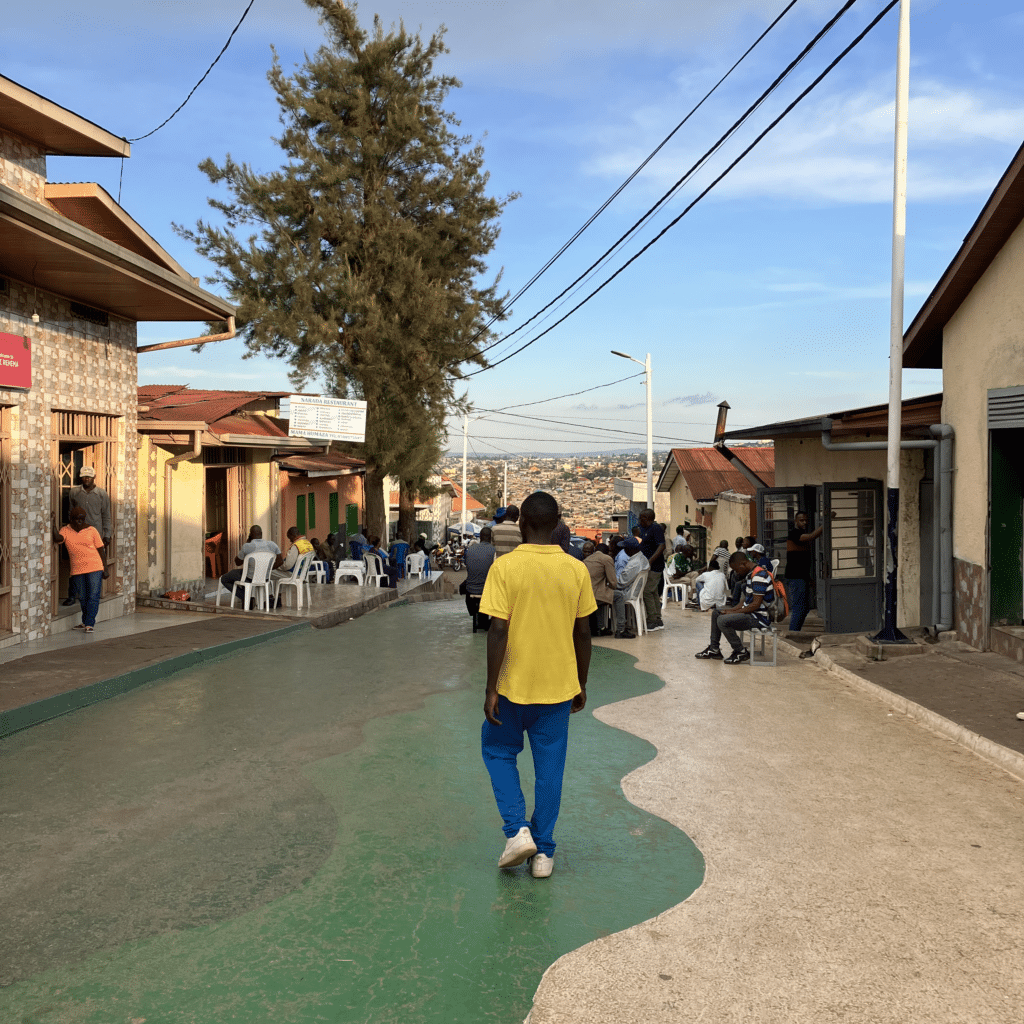
The Walk21 conference in Kigali placed a well-deserved spotlight on the significance of walking as a mode of transport. With statistics revealing that over one billion Africans walk for at least an hour each day, it is evident that walking is not just a choice but a necessity for many. It’s a fundamental part of daily life, providing access to schools, markets, healthcare, and jobs, particularly in areas with limited access to motorized transport.
At the same time, lack of infrastructure, road safety and negative externalities of motorised transport such as air and noise pollution pose severe challenges to pedestrians. As the Walk21 conference highlighted, it is imperative that urban planners and policymakers recognize the importance of investing in pedestrian-friendly infrastructure and policies. This recognition goes beyond merely acknowledging the existing role of walking in African cities; it means actively promoting the safety, convenience, and dignity of pedestrians, recognizing them as ‘valuable’ road users (traditionally referred to as ‘vulnerable’ road users). In line with efforts to promote active mobility, providing safe and enjoyable walking environments is a cost-effective way to drive forward the sustainable mobility agenda.
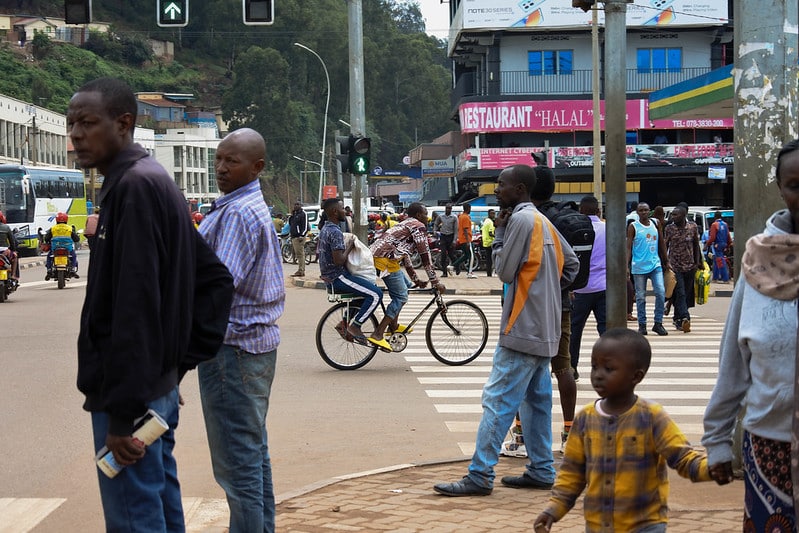
Perception of satefy and strategies employed to ensure safe trips vary greatly among road users and are highly gendered. A study (Istat 2018) revealed that 36.6% of women in Italy refrain from going out at night due to fear, underscoring a critical issue that needs attention. In the session “Gender Dynamics of Wakability, researchers and practitioners shared insights from their work in social movements, initiatives and field studies that aim to create more inclusive, safe, and empowering walking environments.
Speakers underlined the need for context-specific solutions that are co-created with citizens to meet the demands of different groups of people. Shining examples of women-led interventions are “Women Walk at Midnight” in Cape Town, South Africa, and the project “Walking Together” by Instituto Caminhabilidade in São Paulo, Brazil. The former aims at naturalizing the presence of women in public space and empowering women to reclaim the streets in the face of prevailing violence. This is realized by the simple, yet political, act of walking different neighborhoods at night, providing a sense of safety and comraderie to one another. The Walkability Institute is dedicated to spotlight citizens as protagonists of change, engaging women in identifying issues of accessibility and safety and co-creating solutions in participative workshops.
Although men are often perceived as less vulnerable, a recent research project from Durham University reveals that this notion doesn’t align with their real walking experiences. Bringing men’s experiences into the debate is crucial for creating comprehensive and inclusive strategies for urban planning and to encourage active mobility.
The article Gender Dynamics of Walkability by Women Mobilize Women provides more gender-responsive approaches to walking.
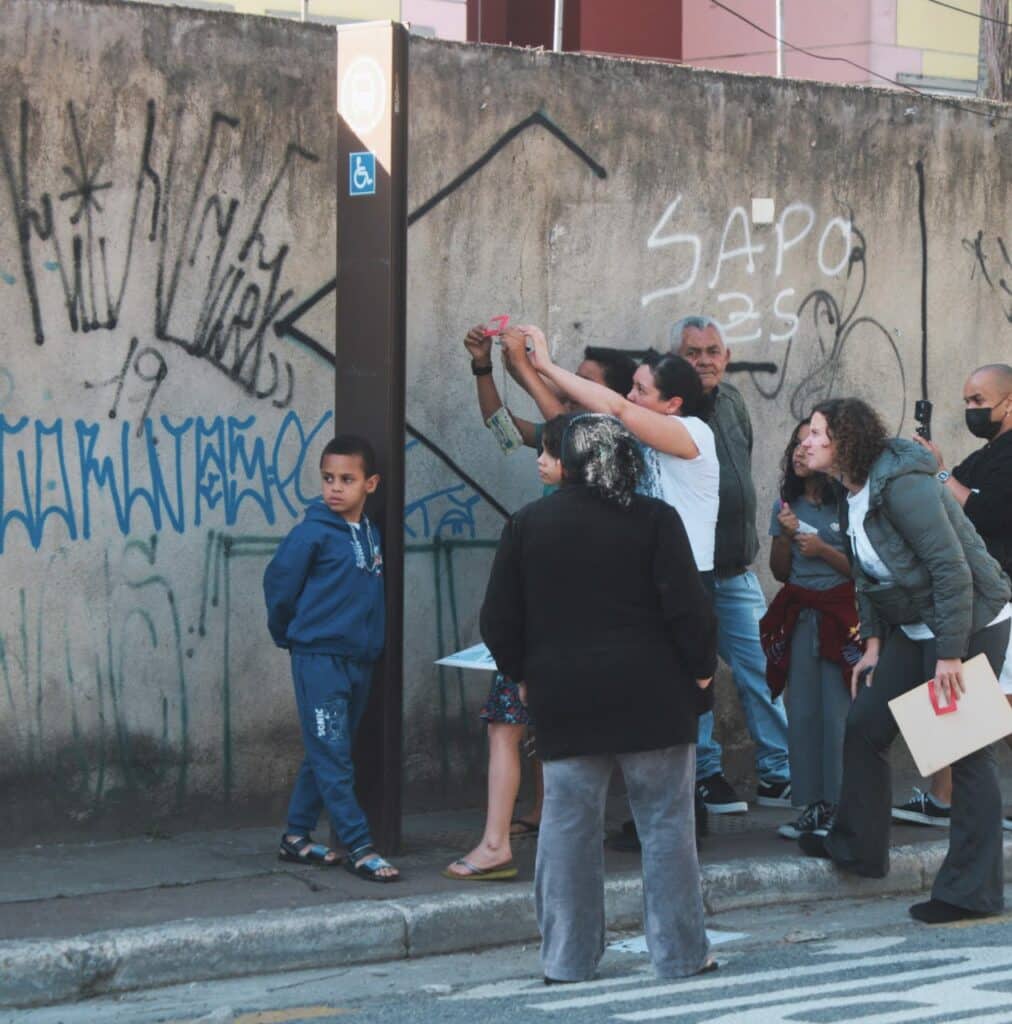
With statistics revealing that 40% of road crash victims on the African continent are pedestrians, the need for investment and policy attention is pressing. Right now, 21 out of 54 African countries do have a walking strategy in place. The United Nations’ Share the Road Programme aims at strengthening policy initiatives and implementation action through the Pan African Action Plan for Active Mobility (PAPAAM), set to launch in early 2024. It aims to incorporate the contributions of development partners in its implementation plan to support existing and yet to come African policy and implementation initiatives on walking and cycling.
Complementing policies with the required funding will further be crucial to advancing active mobility. Walk21 for instance recommend allocating at least 20% of transport budgets to walking and cycling. Walking, an often-overlooked cost-effective solution, can significantly improve the economic viability of high-capacity public transport systems if made attractive and enjoyable. More than that, cities can explore a whole set of funding strategies like land-value capture, parking fees, congestion charges, and dedicated sustainable urban transport funds. Walk21 conference delegates shared diverse perspectives on the crucial topic of financing active mobility. GIZ and UNEP actively participated in these discussions and have a forthcoming publication on the funding of active mobility.
The article Unlocking Funding Opportunities for Walking and Cycling presents a variety of financing opportunities based on key insights from the conference.
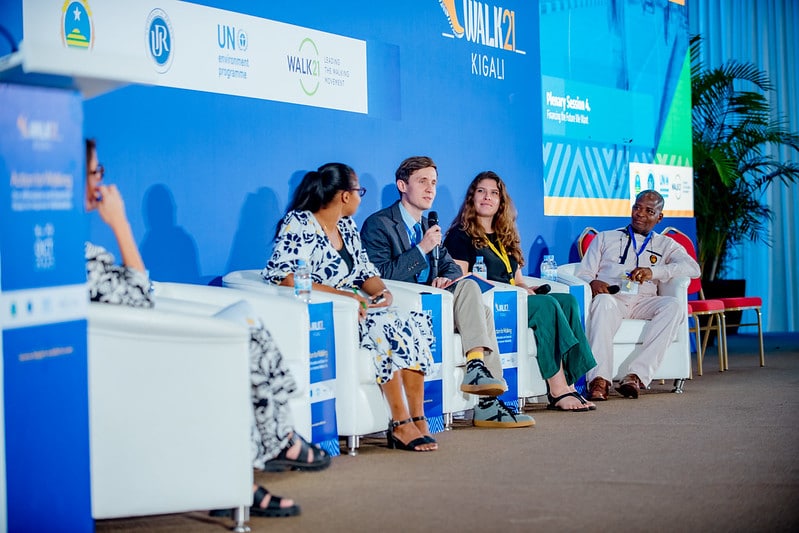
Prioritizing walking and cycling requires strong partnerships for shifting the status quo. Notably, all efforts rely on up-to-date research insights and capacity development. At Walk21, three initiatives stood out in moving these aspects forward on the African continent.
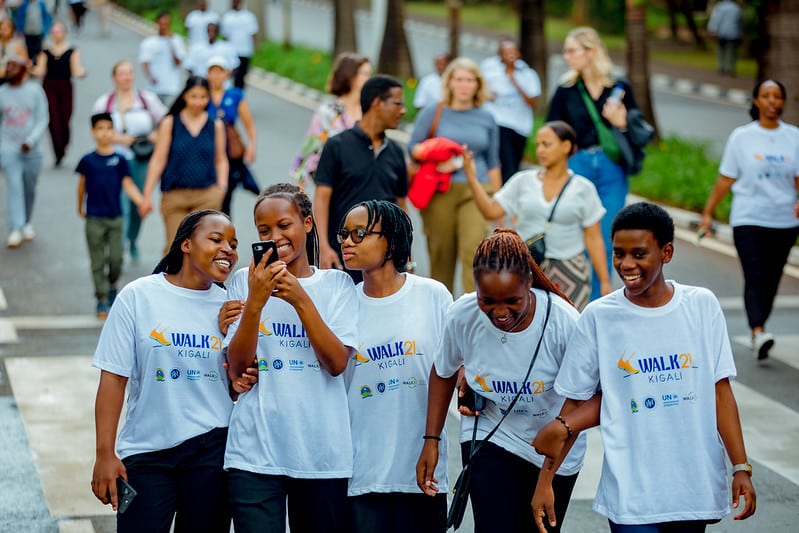
The Walk21 conference in Kigali illuminated the path towards a high level of walkability in cities across the globe, particulary on the African continent. Next year, Walk21 is planned to take place in Lisbon, Portugal. If you are interested in learning more about walking in the African context, we recommend having a look at the UNEP publication “Walking and Cycling in Africa” and to share our call for participants for the Rethinking Transport Lab “Just Mobility in Urban and Rural Areas” (Application deadline: Nov. 19th 2023).
This article is co-authored by colleagues from the projects Rethinking Transport and TUMI.
Rethinking Transport is a GIZ self-financed initiative, implemented by GIZ and Agora Verkehrswende.
With the Transformartive Urban Mobility Initiative (TUMI, the German Federal Ministry for Economic Cooperation and Development (BMZ) is supporting climate-friendly, inclusive, safe and affordable mobilty in cities.